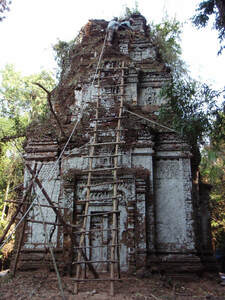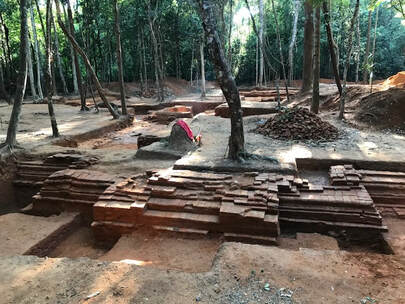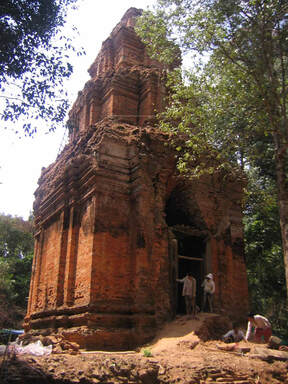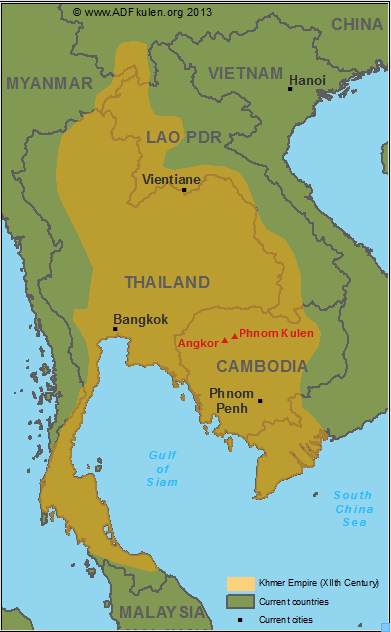|
Eight centuries ago, much of what is today known as Southeast Asia was ruled from Cambodia, where the Khmer people's vast Angkorian Empire flourished. From its historic capital, seated beneath a tropical forest on the plateau of the Phnom Kulen, one of the World most amazing civilisations was born...
According to ancient inscriptions, Phnom Kulen is considered to be the birthplace of the ancient Khmer Empire, for it was there that King Jayavarman II proclaimed independence from “Java” in 802 CE. During the Angkorian era, the mountain was known as Mahendraparvata (“Mountain of Great Indra”). However, pre-angkorian capitals (such as Sambor Prei Kuk) and sites were also the illustrations of a great civilisation emerging from the Fifth to the Eight centuries. Starting from the end of the Eighth century, Phnom Kulen, with its 30 brick temples, a royal palace, a mountain-temple, a large reservoir and a sophisticated urban network, was one of the first royal capitals of the Angkor region. These sites thus have great historical and sacred value, for both Cambodians and the international community. As of today, they are the few remnants of the cradle of an amazing civilisation. After centralizing its power, the Khmer empire created an enormous political and religious centre, from which it dominated most of Southeast Asia for more than six hundred years, from the Ninth to the Fifteenth Century. Remains like inscriptions, sculpted caves and carved riverbeds indicate that the mountain remained occupied throughout the Angkorian period (802-1432 CE), even after the capital was moved to Roluos then Angkor. The work conducted by ADF supports this hypothesis but more field research needs to be conducted, expanded upon and documented. In addition to pre-Angkorian, Angkorian and post-Angkorian sites, prehistoric sites have also been identified and will require further study to be dated precisely. One of the main activities of ADF is to conduct archaeological research in order to better understand the chronology of the occupation of Phnom Kulen. WORK in PROGRESS... |

|
|



